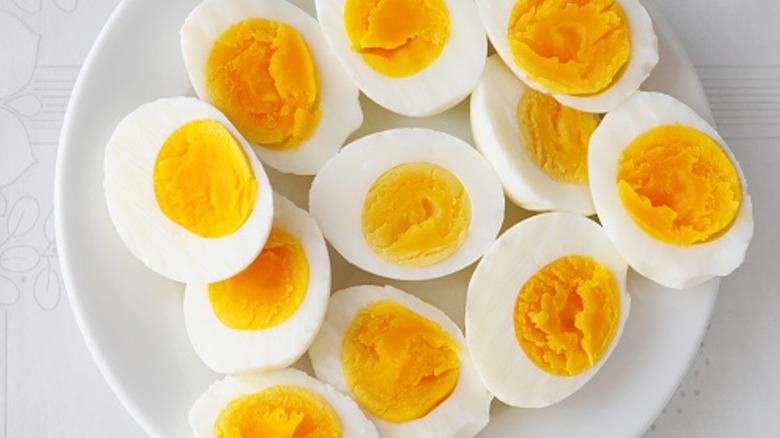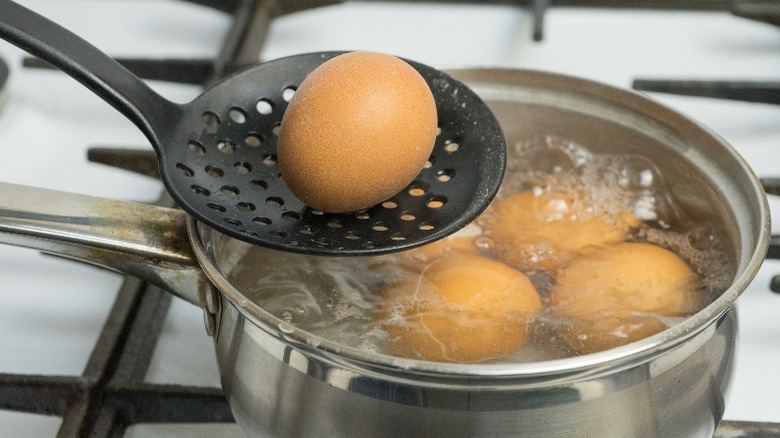Why You Should Remove Boiled Eggs From The Pot A Little Early
Soft, hard, or somewhere in between boiled eggs can make an egg-cellent addition to any meal. Whether you're boiling them up gooey and soft so you can dip your toast or bacon in them at breakfast, taking them to a jammy medium to top off salad or ramen, or bringing them up to a sunny yellow and hard for deviling at the next family barbecue, boiled eggs bring extra protein and a deliciously rich, creamy texture to a variety of dishes. That is — if you know how to cook them right.
Overcook your eggs and you'll be greeted by the heavy and familiarly unpleasant scent of sulfur, the harmless but unappetizing grayish-green edges of your now dry and powdery yolk, plus the rubbery feel of an overcooked egg white. For most of us, there's no greater sin than this when it comes to cooking eggs.
Although there's plenty of advice online about how to perfectly cook your eggs for the ideal texture and doneness that you desire, what isn't often discussed is the effects of residual heat on your boiled egg game.
Residual heat quickly overcooks your eggs
While the debate rages on in online spaces as to whether to "hard-boil" eggs in boiling water, an Instant pot, an air fryer, or the oven, you may have missed the role residual heat plays in achieving the ultimate egg. In fact, residual heat can be your best friend or your worst enemy. That's because residual heat — heat that builds up and remains within food — continues to cook your food all by itself, even after you've taken it off the burner, out of the oven, or out of the boiling water.
This occurs because the outer portion of the meat, veg, or eggs heats up faster than the inner section, and then slowly moves inward towards its core, raising the food's overall temperature. This radiating heat moves through the food, gently equalizing the temperature as it goes, continuing to cook the food as it cools. If you're unaware of this and cook your egg to your desired doneness before removing it from the heat, as it cools it will cook even further, and in just a few minutes your eggs will be overcooked.
Luckily, harnessing residual heat is one most chefs are taught in culinary school. This is why conventional wisdom advises removing steaks and roasts early to "let them rest," before serving. Not only does it keep the juices from flowing quickly out of meats — a true travesty for any steak lover — but it also allows residual heat to finish cooking the meat to perfection, with no fear of dry, overcooked, or leathery meat. The same is true for eggs.
So pull your eggs out of the boiling water a few minutes early and let residual heat do the rest, and you'll get perfectly-done eggs every time.

